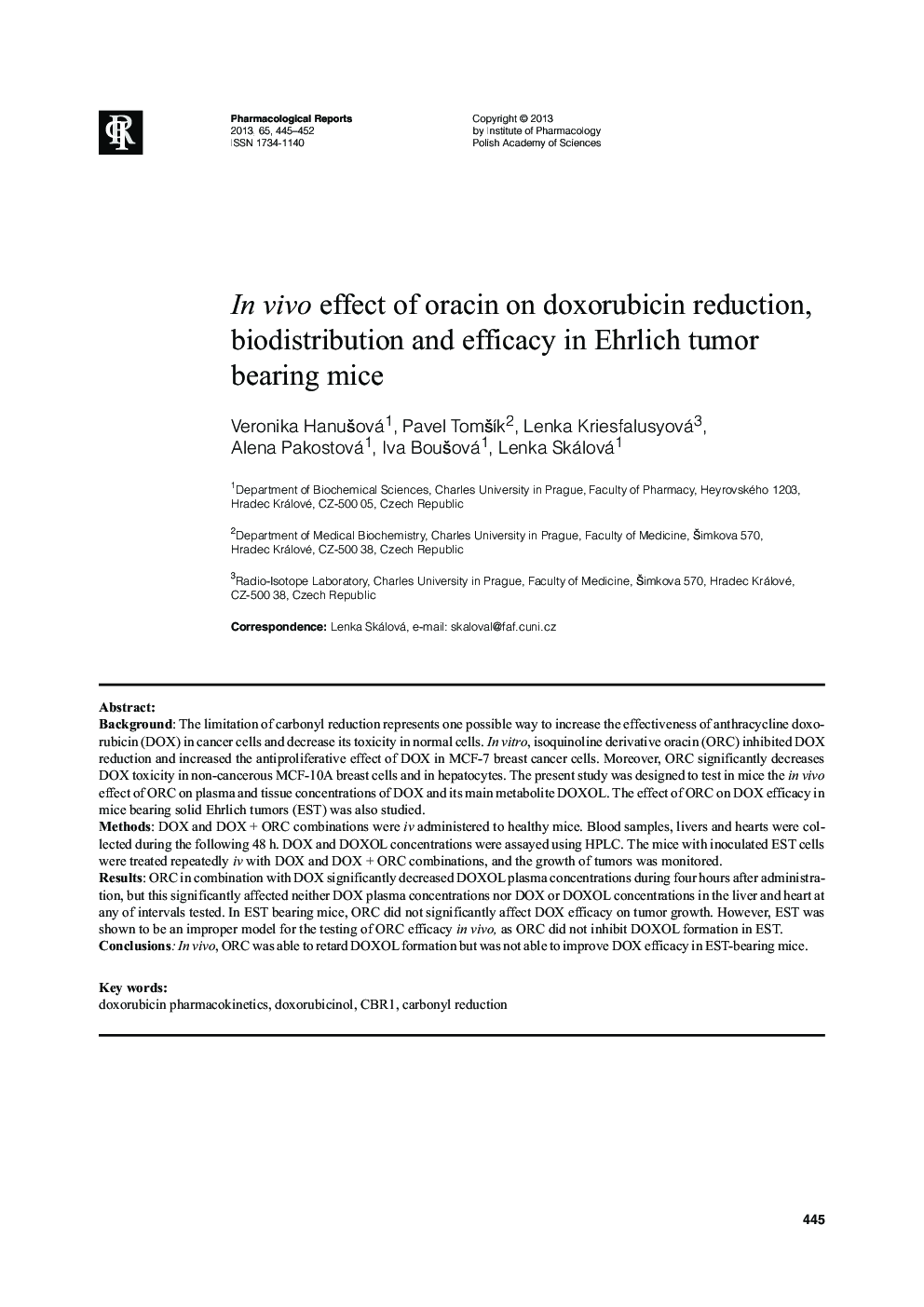| Article ID | Journal | Published Year | Pages | File Type |
|---|---|---|---|---|
| 2011510 | Pharmacological Reports | 2013 | 8 Pages |
BackgroundThe limitation of carbonyl reduction represents one possible way to increase the effectiveness of anthracycline doxorubicin (DOX) in cancer cells and decrease its toxicity in normal cells. In vitro, isoquinoline derivative oracin (ORC) inhibited DOX reduction and increased the antiproliferative effect of DOX in MCF-7 breast cancer cells. Moreover, ORC significantly decreases DOX toxicity in non-cancerous MCF-10A breast cells and in hepatocytes. The present study was designed to test in mice the in vivo effect of ORC on plasma and tissue concentrations of DOX and its main metabolite DOXOL. The effect of ORC on DOX efficacy in mice bearing solid Ehrlich tumors (EST) was also studied.MethodsDOX and DOX + ORC combinations were iv administered to healthy mice. Blood samples, livers and hearts were collected during the following 48 h. DOX and DOXOL concentrations were assayed using HPLC. The mice with inoculated EST cells were treated repeatedly iv with DOX and DOX + ORC combinations, and the growth of tumors was monitored.ResultsORC in combination with DOX significantly decreased DOXOLplasma concentrations during four hours after administration, but this significantly affected neither DOX plasma concentrations nor DOX or DOXOLconcentrations in the liver and heart at any of intervals tested. In EST bearing mice, ORC did not significantly affect DOX efficacy on tumor growth. However, EST was shown to be an improper model for the testing of ORC efficacy in vivo, as ORC did not inhibit DOXOL formation in EST.ConclusionsIn vivo, ORC was able to retard DOXOLformation but was not able to improveDOXefficacy in EST-bearing mice.
